Iran’s Regime Screens Porn To Intimidate Girls Not To Stage Protests

Porn videos have been shown as a means of deterrence in several girls' schools across Iran, threatening them not to take part in "Women, Life, Freedom" protests.

Porn videos have been shown as a means of deterrence in several girls' schools across Iran, threatening them not to take part in "Women, Life, Freedom" protests.
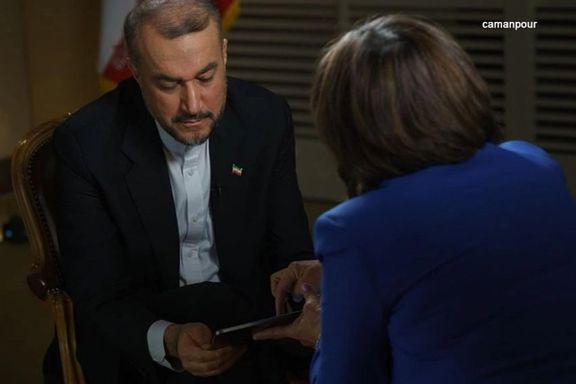
Iran's foreign minister claims that "women in the country have all the necessary freedoms" and that the police "did not kill anyone with a bullet” during the recent protests.
Hossein Amir-Abdollahian made the remarks in a challenging interview with CNN’s Christiane Amanpour, herself of Iranian origin, on Wednesday.
Amanpour conducted the interview without a hijab, in support of Mahsa Amini who died in custody after being arrested for the inappropriate wearing of her hijab. The event sparked mass protests since September, characterized by the slogan, 'woman, life, freedom' as women call for equal rights under the Islamic regime.
More than 500 civilians have since been killed in clashes with security forces with thousands more arrested.
Amanpour raised the issue of the alleged rapes of male and female prisoners at the IRGC detention center, which CNN had verified through its sources. Amir-Abdollahian claimed the reports were "biased and incorrect", stating that he cannot confirm the issue and that there are many such "baseless" claims.
The foreign minister's denial comes as videos of police officers assaulting protesting women in the streets continue to be widely published on social media.
“Women in Iran have all the necessary required freedoms within the framework of the law,” he claimed, calling CNN’s interview was “a confrontation”.
He said: “This is not the way to conduct an interview.”
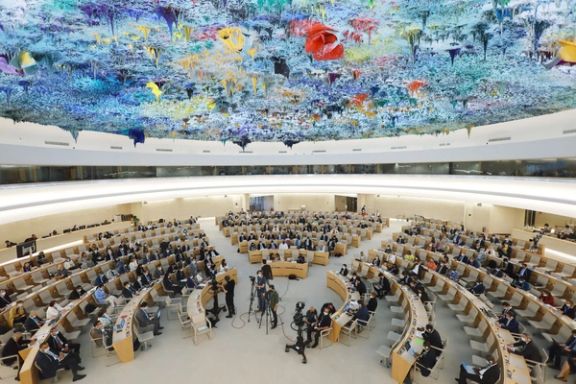
A UN fact-finding mission has called on individuals, groups and organizations to submit information and documentation on the Islamic Republic’s rights violations during ongoing protests.
The mandate was adopted in Resolution S35/1 on the deteriorating situation of human rights in Iran, especially with respect to women and children as well as minorities, in relation to the protests that began in September 2022 after the death in custody of Mahsa Amini.
On November 24, the Human Rights Council decided to establish an independent international fact-finding mission on Iran's deadly repression of protests, which has killed over 500 civilians, until the end of the fifty-fifth session of the Council taking place in March 2024.
The UN mission, in particular, asked for information concerning violent crackdown on peaceful protests by security forces, including alleged arbitrary arrests and detentions, sexual and gender-based violence, excessive use of force, torture and other inhumane treatment and enforced disappearances, as well as the deaths of hundreds of peaceful protesters and thousands of arrests.
The mission is also seeking documentation on physical, psychological and sexual abuse of women and girls for exercising their human rights and fundamental freedoms, and children’s rights violations in relation to the protests, including in raids on schools, and the incarceration of children in ‘psychological centers.'
The call also asked for information on violations of civil society and human rights activists, and reports of charges that carry the death penalty being applied to protesters for offences that are less than the most serious crimes as well as “restrictions on communications affecting landline and mobile telephone usage, including Internet shutdowns and the blocking of social media platforms”.
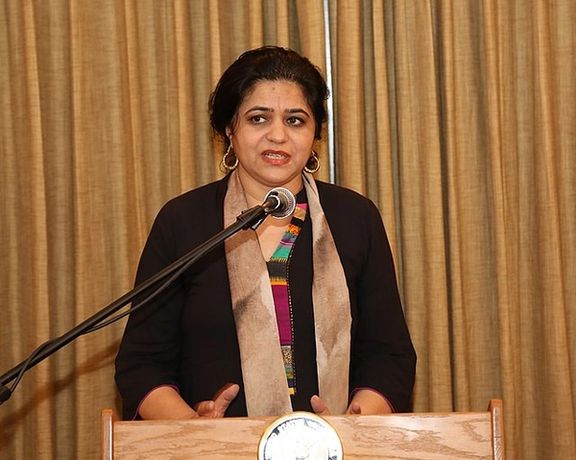
According to the statement issued by the UN Human Rights Council, submissions should be sent as soon as possible, but no later than December 31, 2023, to enable the mission’s Secretariat to process the information, including any follow-up if necessary. Information and documentation can be submitted in English or Persian.
The global outcry against the Islamic Republic’s crackdown on dissent, manifested through a wide array of human rights violations, is getting louder as the opposition forces are uniting and the world seems to be acknowledging the popular uprising. The deteriorating state of human rights in Iran, particularly unlawful executions and chemical attacks on schoolgirls, on the backdrop of worsening economic conditions, workers’ strikes, and devaluation of national currency rial has led to new moves by the international community.
In addition to Europe mulling over designating the Revolutionary Guards – IRGC – as a terrorist organization, US lawmakers are pushing for additional sanctions on Islamic Republic’s parliament. Packed with hardliners, the body provides the legal framework for Tehran’s security forces to murder, torture, and imprison dissidents, US lawmakers say as a bipartisan coalition is pressuring the Biden administration to sanction nearly all of its members amid the government’s crackdown on anti-regime protesters.
Pushing for sanctions on 227 out of 290 members of Iran’s parliament, a group of 26 US representatives and senators from both parties said that "the Islamic Republic of Iran lacks democratic legitimacy, and the members of its parliament are not true democratic representatives of the Iranian people."
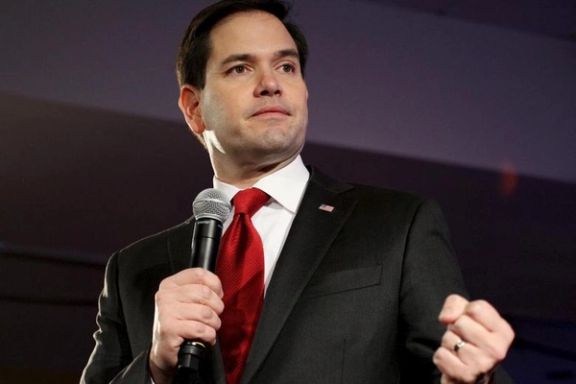
Led by Representative Claudia Tenney (R, NY) and Senator Marco Rubio (R, Fla), the group sent a letter to the State and Treasury Departments. "We urge you to take further actions—and encourage international partners to join us -- to impose much clearer costs on the Iranian regime for the execution of protesters."
On Wednesday, State Department spokesperson Ned Price expressed Washington’s unequivocal determination to hold the Islamic Republic authorities accountable for their actions, saying “we are using every authority we have at our disposal to pursue those who are responsible for the atrocious human rights abuses that the Iranian regime has perpetrated against its own people since September of last year.”
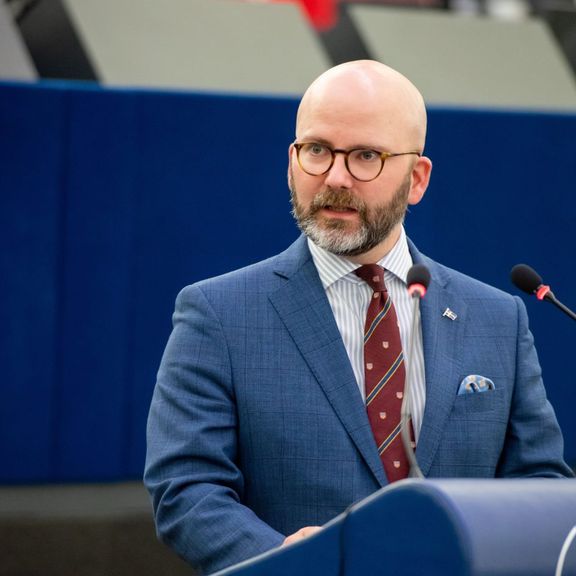
Charlie Weimers, a member of the European Parliament, has said that the EU should create a fund to support Iran's strikes by the blocked Iranian assets.
“One point that I will take to my fellow legislators is the need to support the Iranian labor movement. Many Iranian workers are struggling under almost slave-like situations in IRGC-owned entities… and we need to support them in some way by a strike fund,” stated Weimers.
He was speaking at a press conference with Iran’s exiled Prince Reza Pahlavi, who has been touring Europe to mobilize support for Iran protests.
He further noted that “we have an opportunity to seize the assets of the IRGC abroad…to create a strike fund for Iranian workers to enable the Iranian people to put an end to this regime.”
Weimers went on to say that European leaders should invite Iranian opposition to meet with them to recognize the Iranian opposition and to recognize that there are concrete plans for a transition to a democratic free Iran.
As the protests and calls for strikes continue in Iran, Prince Reza Pahlavi has repeatedly asked the US and the West to form a fund to support the families of the workers who are on strike.
Reza Pahlavi has repeatedly emphasized that the nationwide strikes along with protests will overthrow the Islamic Republic.

Exiled Prince Reza Pahlavi delivered a speech Wednesday and answered questions about post-Islamic Republic Iran at the European Parliament in Belgium.
Pahlavi, who has been very active in recent weeks advocating the “revolution in Iran,” was hosted by the Swedish Member of the European Parliament Charlie Weimers and Czech MEP Tomáš Zdechovský. His visit to Belgium is the latest leg of his European tour packed with meetings aimed at garnering support for the newly formed Iranian democratic opposition and pushing for sanctions against the Revolutionary Guards – the IRGC.
His speech was focused on how European countries will benefit from a regime change in Iran along with the Iranian people themselves. He elaborated on the economic benefits that a democratic Iran would herald for Europe in addition to security issues. Mentioning some terrorist activities in Europe by the Iranian regime he called on the MEPs to help further isolate “the regime that occupies” Iran, and expand their support for the Iranian people.
The United States and European countries have sharply criticized the Islamic Republic for its deadly crackdown on protests, but only the US has sanctioned the IRGC, while Europe still hesitates.
He highlighted that the Islamic Revolution of 1978 was never meant to be confined to Iran’s borders by its authors, adding that many leaders of the Islamic Republic, especially its founder Rouhollah Khomeini, do not see Iran as a nation but a vessel to export the Islamic Revolution.
He said now that different opposition voices have united in an unprecedented fashion to oust the regime, it is time for Western democracies to engage with and support the Iranian people.
Pahlavi said that support from European countries also benefits Europe and the wider Western world “because the movement for freedom and democracy in Iran carries the promise of a brighter, safer and more prosperous future for all democratic nations.”
Pahlavi went on to enumerate the threats posed against European countries by the Islamic Republic, describing its military support for the Russian invasion of Ukraine as the latest example. “The Islamic Republic is the only government outside Europe to be actively aiding and abetting Russia’s invasion through provision of military equipment,” he reminded the parliamentarians.
Emphasizing that he would never support a foreign war against Iran, Pahlavi said that “this regime is waging war against Europe, against its land, people and culture, just as it has waged war against my country since its inception. That is why it is of utmost importance that the European Union confronts this regime and holds it accountable for its criminal behavior.”
He said designating the IRGC as a terrorist organization by the European Union is the first step that “would limit meaningfully the regime’s ability to oppress Iranian people and terrorize yours.”
He said that Iran will become an ally of Europe and the Western world after the Islamic Republic, and assured Europe that a vacuum of power would not happen after the fall of the regime. “Iranian people have the talent and the will, the technical experts, the political forces and the national unity to manage a transition from this regime to a secular democracy,” he boasted.
He continued that the path towards establishing a secular democracy in Iran begins with acknowledging “two fundamental truths: that the Islamic Republic poses an existential threat to Iran and its people and that the Islamic Republic cannot be reformed.”
Stressing the necessity of overthrowing the regime in the shortest possible time, he underlined that Europe's support for the protesters in Iran “can significantly reduce the time and the cost of their brave struggle.” The people are the true sovereigns of Iran, not the Islamic Republic, he said, asking the European countries to recognize their struggle. “May light triumph over darkness,” he concluded and received a standing ovation from the MEPs.
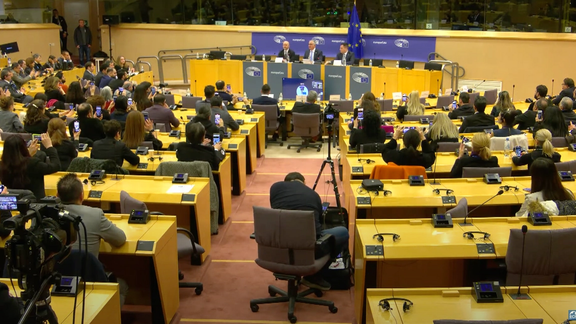
He also answered several questions by the representatives, some with Iranian heritage, about the future of Iran. “How could you possibly get an answer to a problem by talking to the people who are part of the problem?” he quipped in response to a question about the hesitation by those who opt to appease the regime in fear of the consequences.
Answering a question about the nuclear deal and the future of nuclear weapons, he pointed out that the problem is not the gun but the finger on the trigger. He said it is the nature of this regime that cannot be trusted regardless of what document they sign. He emphasized that decision about the country’s nuclear program would be taken by the future government of Iran.
In a historic joint event in Washington on February 10, eight prominent opposition figures held a forum, signaling the emergence of a leadership council in the diaspora to campaign for international support in favor of Iran’s protest movement. They also called for support from democratic countries to change the regime in Iran and establish democracy.
Earlier in the month, more than 20,000 Iranians held a protest rally outside the European Council in the Belgian capital, to call on the European Union countries to designate the IRGC as a terrorist organization. Thousands of Iranians from all over Europe held a massive rally in Strasbourg in January to pressure the European countries to list the IRGC.

Iran International has obtained information about the connection between the Islamic Republic’s internet and mobile monitoring companies and foreign firms helping them.
Companies from the UK, Canada and Russia are cooperating with an Iranian telecommunication company to track protesters and access the content of their calls or messages.
In October, American non-profit news organization The Intercept leaked a series of internal documents and communications, including emails sent by representatives of the Iranian and foreign companies, providing details on what appear to be plans to develop and launch an Iranian mobile network, including subscriber management operations and services, and integration with a legal intercept solution. The system, called Integrated system to query telecom customer Information – known by its Persian acronym SIAM – allows Iran’s Communication Regulation Authority (CRA) to enforce the Iranian government’s requirements to filter Internet content through a spyware and track the data of customers.
The CRA is tasked with executing governmental powers, supervision, and executive powers of Iran’s Ministry of Information and Communication Technology. The regime’s CRA regulations state that all telecom operators in Iran must provide the CRA with direct access to their system for retrieving user information. Justified under its own broadly defined “Legal Intercept” provisions, the CRA aims to use this sophisticated system to store user information, allow or deny a user’s access to mobile services, and view historical voice, SMS, and data usage.
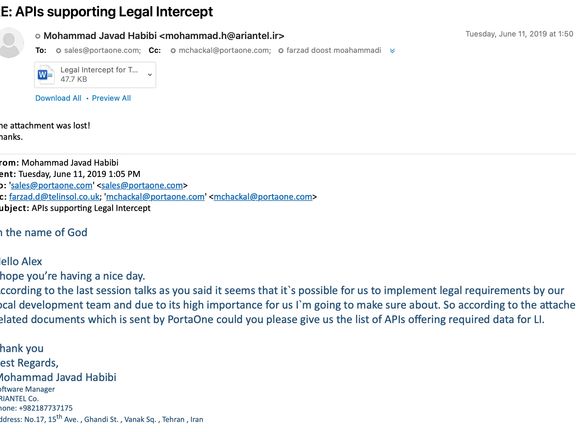
Ariantel is an Iran-based Mobile Virtual Network Operator (MVNO), the primary source of the emails. Telinsol is a UK-based satellite communications consultancy which appears to have conducted international business transactions with vendors on behalf of Ariantel. PROTEI is an international telecommunications systems vendor founded in Russia which was selected by Ariantel to provide core network components to the company in support of user authentication, data management and Deep Packet Inspection (DPI), SMS delivery, and mobile network signaling. And PortaOne is a Canada-based mobile business and support system vendor, which was selected to provide mobile account creation, service provisioning, billing, and customized integration with Iran’s Legal Intercept system.
Iran International’s Mojtaba Pourmohsen has contacted all the foreign-based companies but none of them provided any comments about their cooperation with Iranian firms. He went to the addresses registered for the London-based company, but they turned out to be fake or old, strengthening the speculations that these firms can be cover companies belonging to people close to Iranian authorities. The manager of the company is identified as Iranian national Nima Eskandari, who, according to the leaked emails, was in correspondence with Ariantel and the Russia-based company about their services.

The emails and other documents revealed the level of sophistication Iranian authorities sought to conduct surveillance operations and control access to mobile information and communications. The software and services offered by the foreign-based vendors allow the CRA to integrate with mobile service provider systems inside the country, including the web service API that is called SIAM. It seems that Ariantel has deployed a fully operational mobile network in Iran, integrating with the CRA’s Legal Intercept system.
According to our sources, representatives from Iran’s main mobile service providers are likely attending the Mobile World Conference in Barcelona, the largest and most influential event for the connectivity ecosystem. While the organizing body of the MWC Barcelona confirmed in response to Iran International's email that no delegation from Iran has been invited to this conference, exclusive information shows that four high-ranking managers of Iran's biggest service provider are participating in the event, being held from late February until March 2.
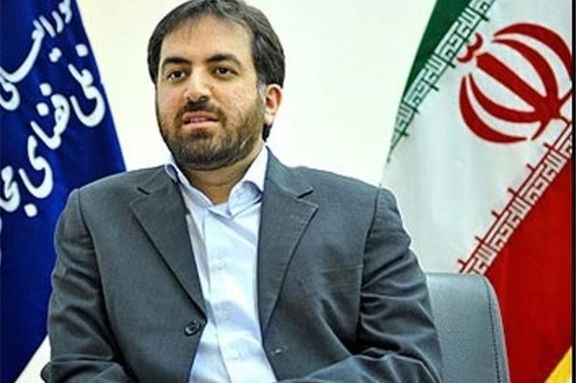
An informed source told Iran International that they applied for a visa through France to attend the Barcelona conference as independent individuals. The four Iranians are close to the company’s CEO Mehdi Akhavan Bahabadi, who is himself among the close circle of one of Supreme Leader Ali Khamenei’s sons.
Iran’s biggest mobile companies, namely Mobile Telecommunication Company of Iran (Hamrah Avval) and MTN Irancell, are mainly owned directly or through intermediaries by Revolutionary Guards – or the IRGC – that is the Islamic Republic’s main force in quashing the ongoing protests across the country.
In two separate reports, the UK-based website Iranwire has mentioned that "porn" videos and even "human sex with animals" were shown to female students in Tehran, Mahshahr, Esfahan and Eslamshahr.
The incidents happened as hundreds of schoolgirls - who were at the forefront of anti-regime protests - have been hospitalized in various cities since November 30 after mysterious gas poisonings at schools. This week alone saw hundreds more girls attacked in several cities.
One of the students said that regime officials told the students “if you participate in protests, the same will happen to you”.
Due to the "shock" caused by watching such graphic scenes, some of the girls had been taken for medical care.
When families objected to the twisted tactic, education ministry officials threatened that they will hand them over to the security forces.
One mother whose daughter had been subjected to the films, said: “The principal said we wanted the girls to see the results of sexual revolution."
Hamid Rasaei, a hardline member of parliament, earlier stated that the goal of the protesters is “to sleep with someone every night and graze like animals”.
The warped measures imposed on the girls reflect the threat the regime sees is posed by the young female generation, leading the protests from the streets, schools and universities.
It is the first time in recent history that women have played such a visible role in anti-regime uprisings, this most recent round triggered by the death in custody of Mahsa Amini, arrested for the inappropriate use of her hijab.
The student movement in Iran has spread nationwide and videos and images show young women cutting their hair, tearing or burning the photos of Islamic revolution founder Ruhollah Khomeini and Supreme Leader Ali Khamenei, and burning their headscarves.